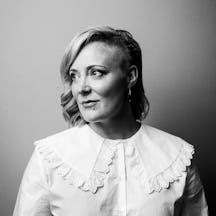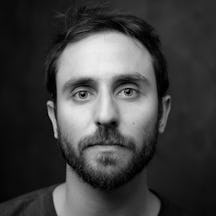Nothing prepared bestselling novelist Emma Jane Unsworth for the onslaught of becoming a mum. Six months after the birth of her son, she found herself overwhelmed with fury and exhaustion. ‘After the Storm’ is her candid account of postnatal depression and the utter weirdness of new motherhood. In this extract, Emma describes both her despair and the start of her recovery.
Surviving the storm of postnatal depression
Words by Emma Jane Unsworthphotography by Thomas S G Farnettiaverage reading time 8 minutes
- Book extract
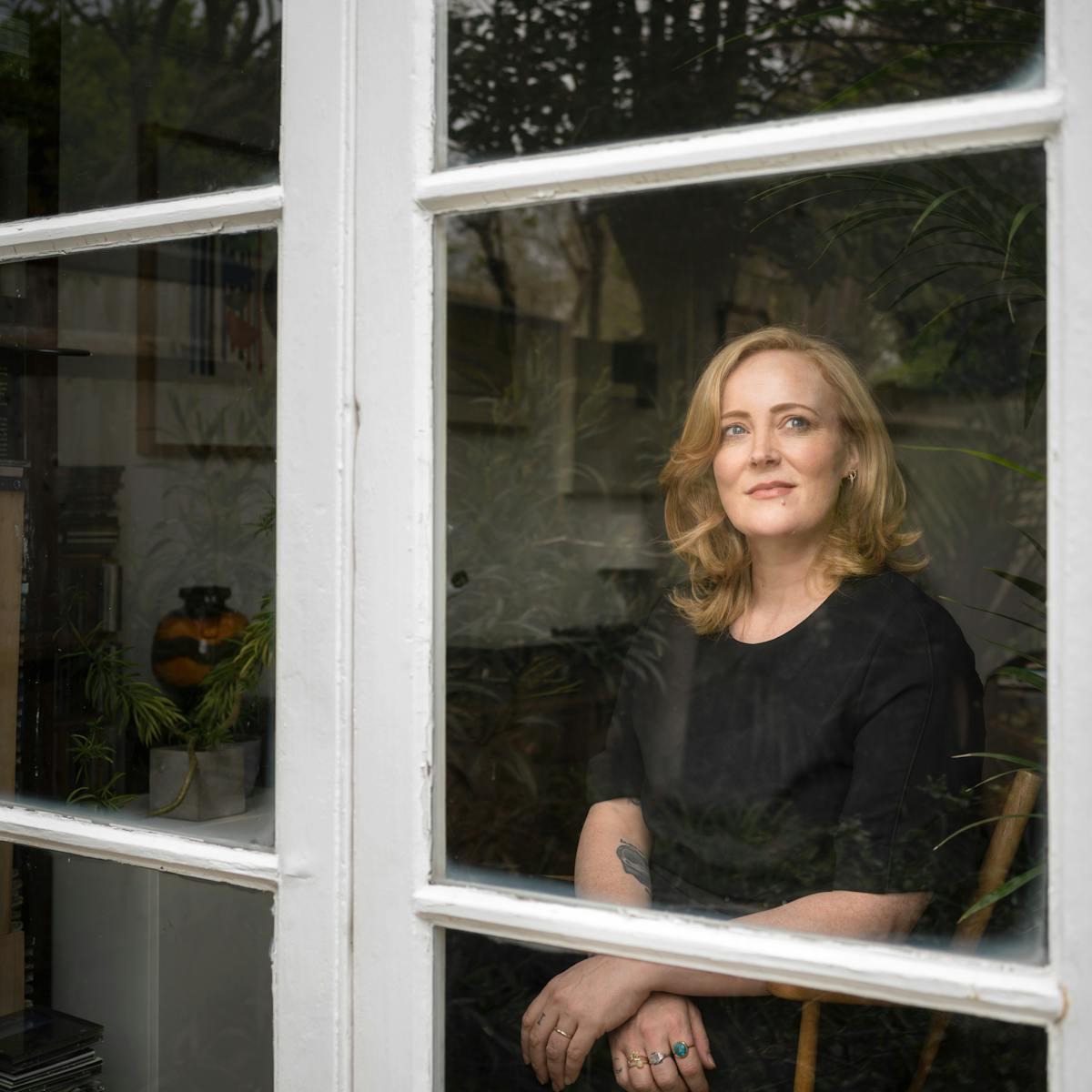
And then it comes. The storm breaks.
First, I hit a wall.
One night the new neighbours start drilling holes in the wall at 8pm and the noise wakes the baby. Drilling at night is never welcome, but this sends me over the edge. I scoop up the screaming baby from his cot and – with him in my arms – I take a large antique hole-punch my father gave me, still on the shelf in here from when it used to be my office. (My spacious, peaceful office.)
I bash the hole-punch repeatedly against the wall. I do it ten or 20 times. It makes a huge racket and the drilling stops. Meanwhile Ian has started running downstairs to tell them to stop. I keep bashing the hole-punch against the wall, over and over. The hole-punch makes large gouges in the paintwork and plaster.
When Ian comes back up, he is horrified. I put the baby back in his cot and return, wordlessly, to the lounge. I feel a sense of being purged, and weirdly reassured. The rage, although frightening, is the only thing I have felt – physically, mentally, spiritually – in a long time. It tells me I am still alive. I can have an effect. I have power. The shards of adrenaline are like bolts of electricity, keeping the monster moving.
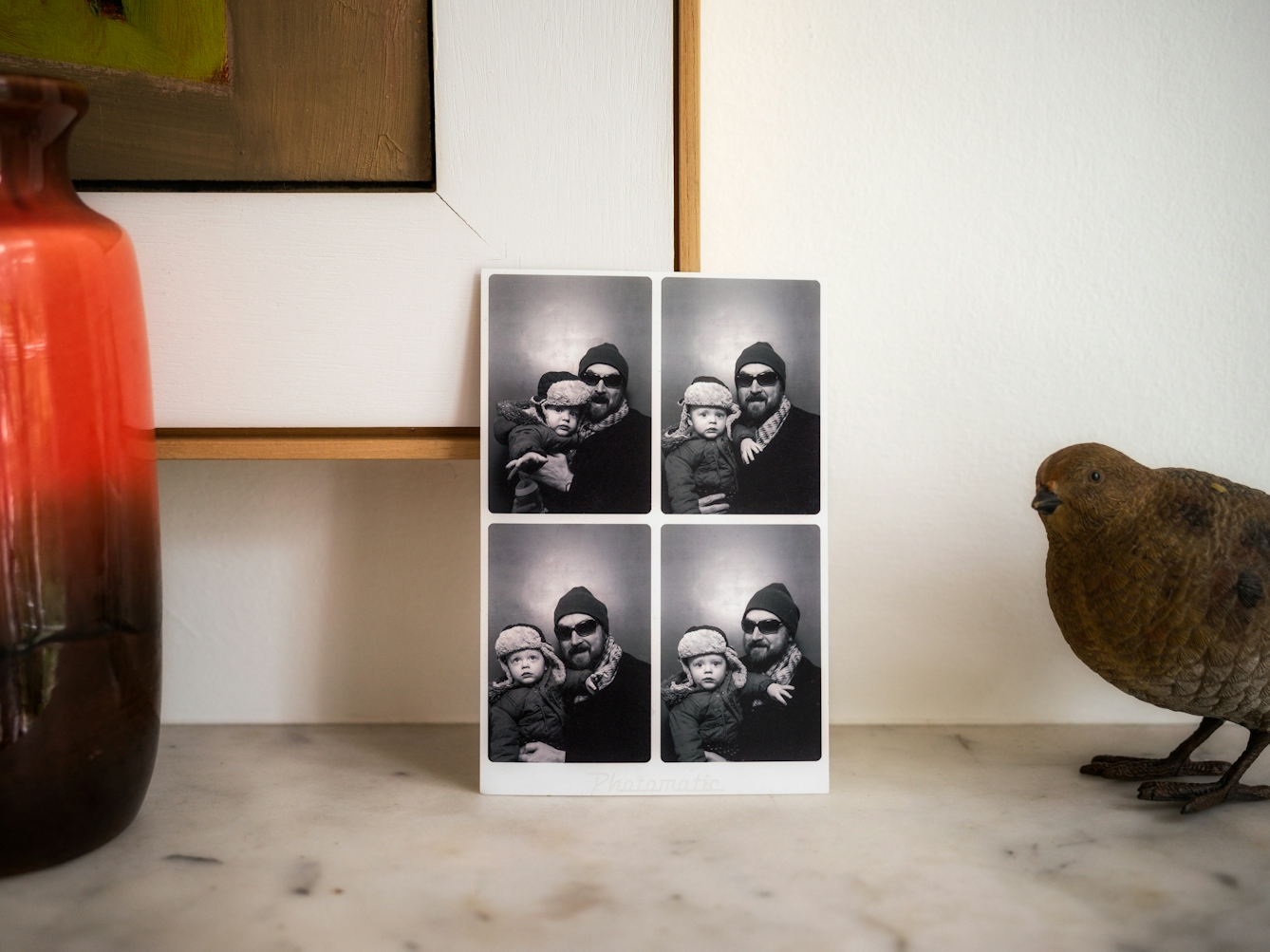
“I bash the hole-punch repeatedly against the wall. It makes a huge racket and the drilling stops. Meanwhile Ian has started running downstairs to tell them to stop.”
Second comes a storm from a teacup.
Ian reminds me he is going away for a few days. He has been invited to give a keynote talk at an academic conference in Berlin. It must have been a good day when I agreed to this. The conference is in a field he helped to found, so it feels important to him, and the baby is nearly a year old.
We are sitting together in the lounge at night, drinking tea. When he tells me he is going away, I stare at him. The air between us is charged. I am processing this information. Or maybe not processing, because before I know it, I hurl my half-full mug across the room towards him and it hits the wall. It smashes into brown and white fireworks. Ian leaps across the sofa, out of the way.
“What the fuck?!”
Did I mean to hit him? I don’t know. Am I glad it smashed? Yes. Do I want to smash more things? Yes. Big style. I have never been a crockery thrower. Never been one for violence, or confrontation even. But as I stare at the tea sliding down the wall in great dirty tears, at the thin shards of porcelain on the floor, I feel like I am on the edge, finally, of something truthful.
I hate life, I hate Ian, and I hate the fact he can decide to go away for a few nights. Why is he not imprisoned, like me? I know I am also on some level terrified of being alone, of being left. I know that I cannot cope.
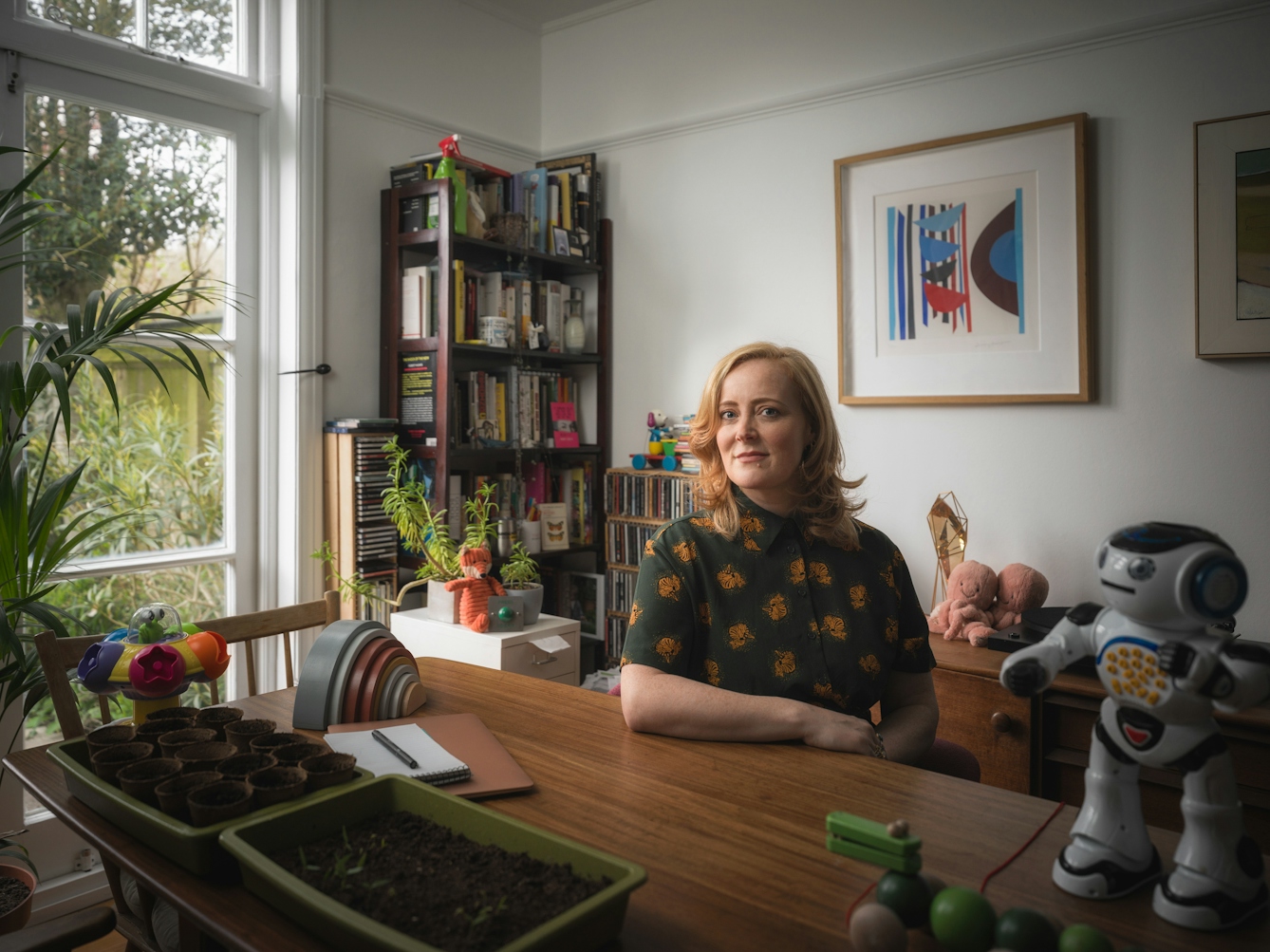
“I hate life, I hate Ian. Why is he not imprisoned, like me? I know I am also on some level terrified of being alone, of being left. I know that I cannot cope.”
In therapy
The room is cool and quiet. I look around, trying to find details of her life to draw on, to align myself with, so that she might like me more.
I am like the detective in ‘The Usual Suspects’ when Keyser Söze has left the room. I am piecing a life together from the fragments. But instead of solving a crime, I am pouring everything into an insatiable hole of social need.
I am good at this creative, self-destructive shit. I stop myself. I am not here to be liked. I am not here to fit in. Besides, knowing me, this is some kind of elaborate procrastination to stop me tending to the matter in hand.
Kim has a look that makes me feel seen, right the way through. In the nicest possible way.
She is practised in the art of silence. I gabble into the dead air. I splurge it all out to Kim that first session.
“You talk very fast,” she says.
“Do I?” I say. I had no idea.
Initially, I am defensive. I tell her I don’t believe in closure and I don’t want to get “better”. “Getting better” is a patriarchal narrative and a marketing invention. Messy women are as valid as any. Women are not problems to be solved.
Kim looks at me.
“Of course I do want to get better, for me,” I say. “But not to be more pleasing and palatable, you understand?”
She stares. Tough crowd.
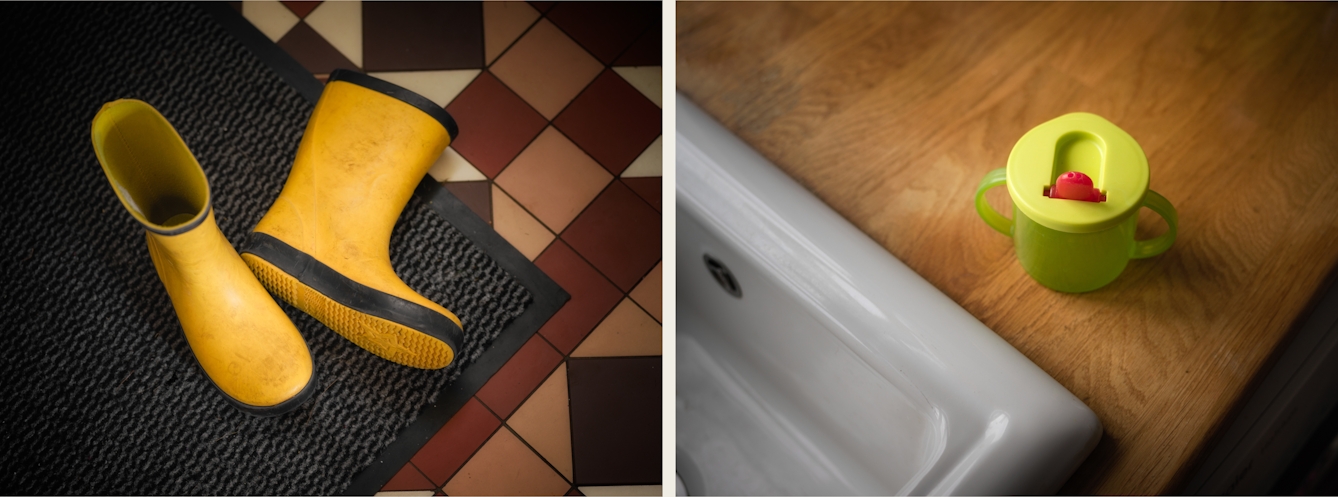
“I say, ‘He tortures me every night with sleep deprivation. He waterboards me with his sippy cup. He will not let me eat or drink.’”
I try jokes instead. “I feel like I’m in an abusive relationship.”
I say, “He tortures me every night with sleep deprivation. He waterboards me with his sippy cup. He will not let me eat or drink or – lately – leave the room. I am captive to his every whim. I am at the mercy of a despot. A smiling assassin.
“He comes at me with the most beatific grin – and then socks me in the neck and goes for a double eye-gouge. How is this acceptable? Is there a number I can call? Like Childline, but for parents? Parentline. Hello, I’m being abused by my nine month-old…”
There is a quiver of a smile at her lips, but no more.
I am going to have to give this woman more, dammit.
I am not a person who readily admits she needs help. I am proud. I like to be seen as someone very capable. But this is not about how Kim sees me. She is facilitating, refereeing, umpiring me with myself on a neutral playing field. The therapist is there but also not there. This is an empty space, a void, or the closest you could get to a void, to pour thoughts into and watch them hang together and then dissolve.
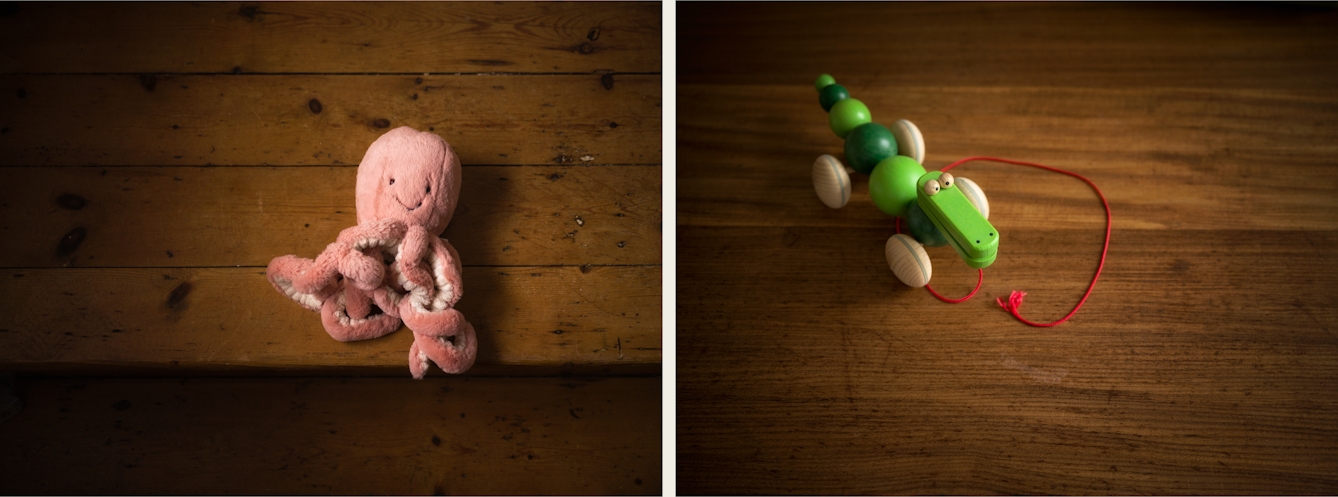
“I just feel like my head is too full, of worry and things that need doing for him. I’m expected to do everything and be okay and feel joyous and complete.”
So I describe what I’ve been feeling. I tell her about the constant frustration, the crying on the kitchen floor, the irritability, the negative outlook that makes me feel doomed – and the crushing guilt that I should just be feeling very lucky for having a healthy baby, and any baby at all.
"I just feel like my head is too full, of worry and things that need doing for him. I’m expected to do everything and be okay and feel joyous and complete. But we are far away from both our families, so we don’t have any support.”
I tell her about the constant frustration, the crying on the kitchen floor, the irritability, the negative outlook that makes me feel doomed.
“I haven’t had any proper sleep or rest for so long. And I have work deadlines because I didn’t want to say no, as the projects were my passion, and it has taken me 20 years to reach a point where I’m paid to be a full-time writer, so it feels hard-won. My partner is a huge support, but he also doesn’t get it, and he’s been away, and—”
Kim nods and gives me a grim but kind smile.
“How bad has it got?” she asks.
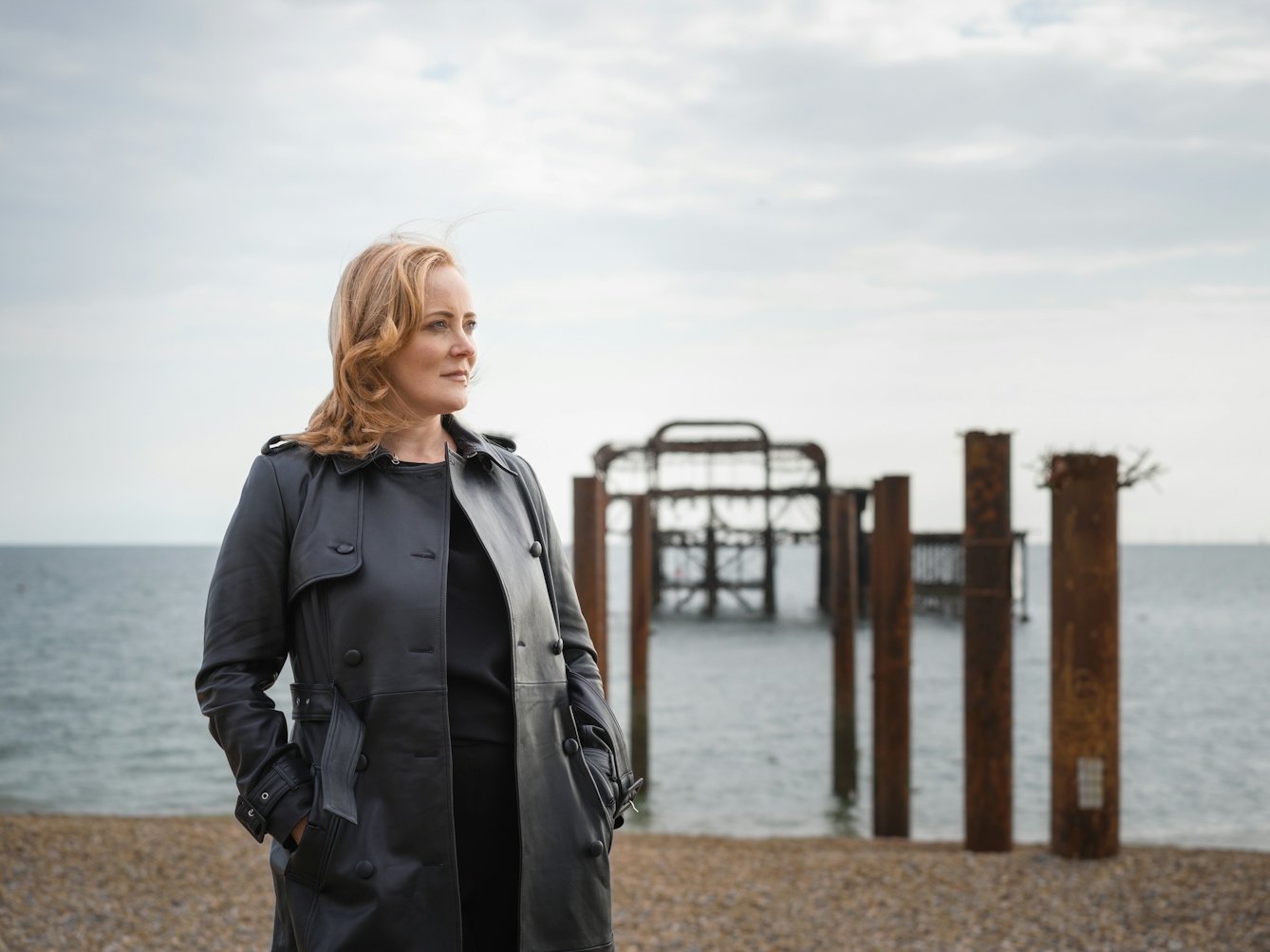
“I feel defeated, but I also feel like it’s a start. I have started talking. I haven’t said the words ‘postnatal depression’ yet, but they are swirling in my head.”
I am not ready for this question. I look down. Here I am, at an impasse. I cannot tell her about the rage, the violence. What if she has to tell child protection? That old bedrock of fear: they will take your baby away.
“I have… been upset around him,” I say.
I weep effortlessly as I’m talking. I shake my head. I can’t say more. She nods again and looks sad for me.
I feel defeated, but I also feel like it’s a start. I have started talking. I am scratching the top off, and I will go deeper. I will call it by its name, like you do with any illness, disease, demon, storm. I haven’t said the words “postnatal depression” yet, but they are swirling in my head.
“I don’t know whether it’s even appropriate to ask you for a diagnosis,” I say. “But my partner thinks that might be helpful—”
Kim just nods.
“Do you think I have…?” My voice trails off.
I don’t need to say it. She swoops in to save me. Kim tells me that, in her opinion, what we call “postnatal depression” is an umbrella term for a variety of mental illnesses that she believes are “a reasonable response to the demands of motherhood in the Western world”.
Imagine that. Everything I have been feeling – the anger, the panic, the outrage – is REASONABLE. This is a revelation. It is the start of my recovery.
‘After the Storm’ is out now.
About the contributors
Emma Jane Unsworth
Emma Jane Unsworth is an award-winning novelist and screenwriter. Her first novel, ‘Animals’, is now a major motion picture, for which Unsworth wrote the screenplay. The film premiered at the Sundance Film Festival in 2019. She also writes for television and various magazines. Her latest novel, ‘Adults’, has been heralded as “hilarious” (Dolly Alderton), “tender” (Jessie Burton) and “dazzling” (Marian Keyes), and is a Sunday Times bestseller.
Thomas S G Farnetti
Thomas is a London-based photographer working for Wellcome. He thrives when collaborating on projects and visual stories. He hails from Italy via the North East of England.
